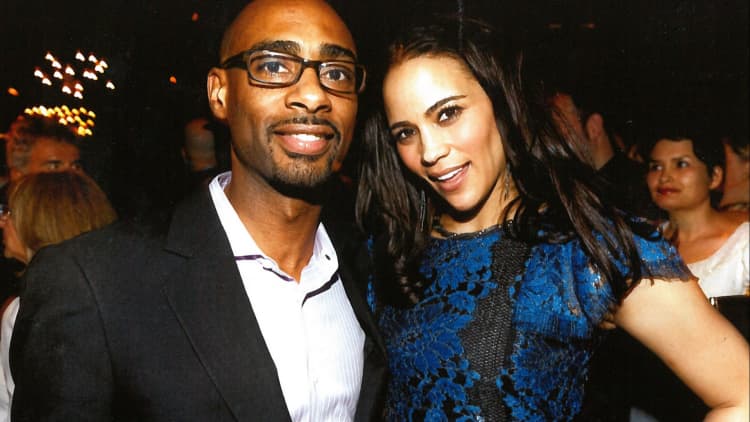Barry Jenkins is an award-winning director, producer and screenwriter who made Oscars history in 2017 with his eight-time nominated film "Moonlight."
Two years later, the 39-year-old who nabbed three Oscars in 2017 is in the running to add three more wins. His most recent film, "If Beale Street Could Talk," is nominated for Best Adapted Screenplay, Best Original Music Score and Best Supporting Actress.
Jenkins' success did not happen overnight. Before becoming the award-winning filmmaker that he is today, the Miami native worked as an assistant at Oprah Winfrey's Harpo Films. In a 2009 interview with Filmmaker Magazine, he said that while the position seemed ideal, he quickly learned how working under someone else can easily keep you from making your own dreams a reality.
"On the surface, it seems like the perfect scenario: aspiring filmmaker gets hired to follow and observe a working director, producer, writer, whatever," said the Florida State University film school grad. "Really though, if you're working for someone else in the same field how can you simultaneously be working for yourself?"
Jenkins said the experience was helpful in showing him the "filmmaking process from an insider's point of view," which he admitted was crucial to helping him navigate opportunities later down the road. But, he said, "a job like that demands so much of your energy, sometimes even your passion, that there's little left to direct towards your own work."
After two years of working at Harpo Films in Los Angeles, Jenkins made the decision to leave.
He told Deadline that at the time, he felt like he knew "important people," but had no real idea how to get his own career off the ground. In 2007, he moved to San Francisco. To make ends meet, he picked up a job at a local Banana Republic clothing store. Oddly enough, he says, it was this job that actually fueled him to get his career going.
As a shipment supervisor for Banana Republic, Jenkins told Filmmaker Magazine, he would wake up at 4:30 a.m. to be at work by 5:30 a.m. Then, when he got off around noon, he would drive to a nearby cafe and write. "Working around non-film people every morning on this job, getting the muscles going, having a dialogue with real people and not about 'projects' was a great way to start the day, open up the brain and get some positive energy going."
Taking advantage of the flexibility, Jenkins used his time at Banana Republic to work on his first feature film, "Medicine for Melancholy," which was released in 2008. "In fact," he says, "several people I worked with there are in the film, another shot the still that became the poster."
The film was shot in 15 days on a $15,000 budget and financed by Jenkins' college friend and fellow filmmaker, Justin Barber. It debuted at SXSW and was eventually acquired by IFC Films. The romantic drama had a very short run in theaters, but it jump-started Jenkins' career.
After the release of "Medicine for Melancholy," Deadline reports, Jenkins spent the next few years writing scripts and shooting commercials. In 2014, he was approached by former classmate and producer Adele Romanski to work on "Moonlight."
The 2016 film, based on Tarell Alvin McCraney's unpublished autobiographical play, "In Moonlight Black Boys Look Blue," quickly turned Jenkins into a director to watch. He took home Oscars for Best Picture, Best Supporting Actor and Best Adapted Screenplay.
He tells The Hollywood Reporter that after the six-year gap between "Medicine for Melancholy" and "Moonlight" he was determined to turn right around and make "If Beale Street Could Talk."
"I want to have a career — I'm going to keep making things," he says.
Like this story? Subscribe to CNBC Make It on YouTube!



